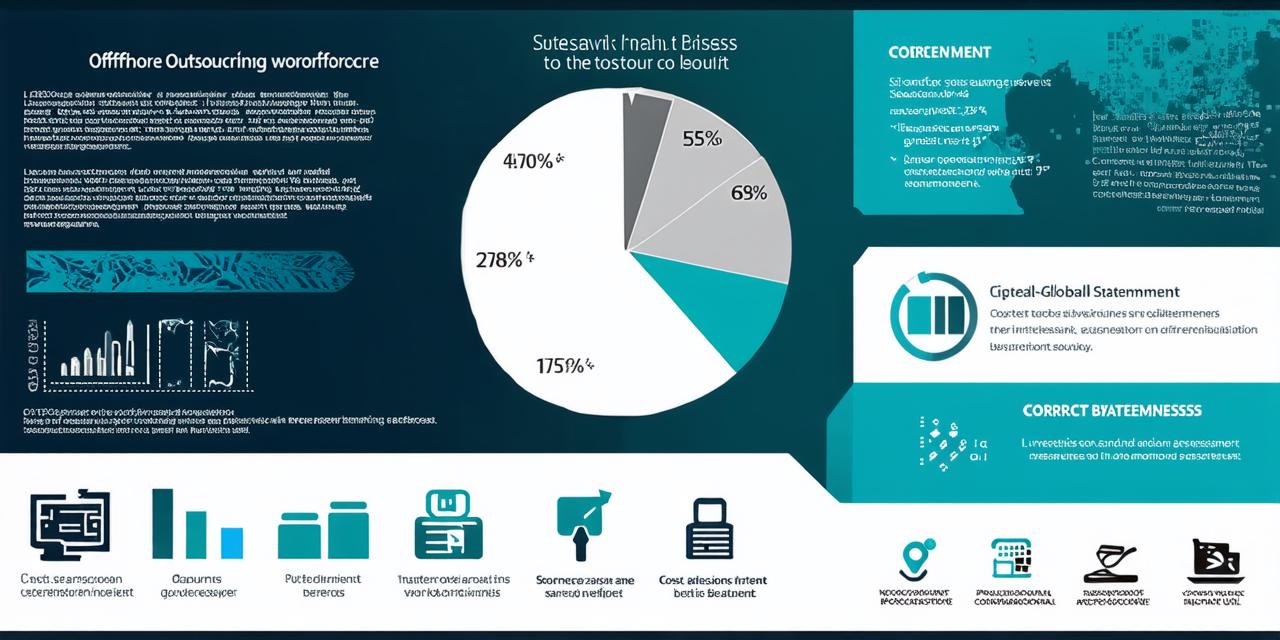Here’s the corrected HTML code for the article:
Offshore outsourcing is a practice that has become increasingly popular in recent years, as businesses look for ways to reduce costs and improve efficiency. However, there are some common misconceptions about offshore outsourcing that can lead to misunderstandings and negative outcomes. One of the most common myths is that it always leads to lower quality work. This simply isn’t true. In fact, research has shown that offshore companies often have higher levels of expertise and experience than their in-house counterparts.
Another common misconception is that offshore outsourcing only benefits large corporations. This couldn’t be further from the truth. In fact, small and medium-sized businesses (SMBs) can also benefit greatly from offshore outsourcing. For these companies, it can help them level the playing field with their larger competitors by providing access to the same level of expertise and resources.
Some people believe that offshore outsourcing is only beneficial for certain types of tasks, such as data entry or customer service. However, this simply isn’t true. Offshore companies can handle a wide range of tasks, from software development to marketing and everything in between. In fact, many businesses now outsource their entire IT department to offshore providers.
Despite these benefits, there are still some risks associated with offshore outsourcing. One of the biggest concerns is communication. Without proper communication, it can be difficult to ensure that work is being done to the required standard. To mitigate this risk, it’s important to establish clear lines of communication from the outset and to regularly check in with your offshore provider.
Another risk is cultural differences. It’s important to understand and respect the culture of the country where your offshore provider is based. This can help to avoid misunderstandings and ensure that work is being done to the required standard.
Despite these risks, many businesses have successfully used offshore outsourcing to improve their operations and bottom line. For example, a study conducted by Gartner found that 43% of companies surveyed reported cost savings of at least 25% when working with offshore providers.
Offshore outsourcing can be a highly effective way for businesses to reduce costs, improve efficiency, and gain access to top talent. While there are risks associated with this practice, these can be mitigated by establishing clear communication channels and understanding cultural differences. If you’re considering offshore outsourcing, it’s worth doing your research and seeking out reputable providers who have experience in your industry.
Offshore outsourcing has become a popular practice in recent years as businesses look for ways to reduce costs and improve efficiency. Despite some common misconceptions, this practice can benefit companies of all sizes and industries.
One of the biggest benefits of offshore outsourcing is cost savings. By outsourcing tasks to offshore providers, companies can reduce labor costs and improve efficiency. This can help businesses save money on salaries, benefits, and other expenses associated with hiring and training employees in-house. Additionally, offshore companies often have lower overhead costs than their in-house counterparts, which can result in even greater cost savings for businesses.
Improved efficiency is another benefit of offshore outsourcing. Offshore providers often have the expertise and experience necessary to complete tasks quickly and accurately. This can help businesses free up resources and focus on other aspects of their operations. Additionally, offshore companies often work around-the-clock, which can help businesses meet tight deadlines and improve productivity.

Access to top talent is also a benefit of offshore outsourcing. Offshore providers often have highly skilled and experienced workers who may not be available in the local market. This can help businesses gain access to the expertise they need to complete tasks successfully. Additionally, offshore providers often have a large pool of candidates to choose from, which can help businesses find the best fit for their needs.
Despite these benefits, there are some risks associated with offshore outsourcing. One of the biggest concerns is communication. Without proper communication, it can be difficult to ensure that work is being done to the required standard. To mitigate this risk, it’s important to establish clear lines of communication from the outset and to regularly check in with your offshore provider.
Another risk is cultural differences. It’s important to understand and respect the culture of the country where your offshore provider is based. This can help to avoid misunderstandings and ensure that work is being done to the required standard. Additionally, businesses must be willing to adapt to different working styles and communication preferences in order to work effectively with offshore providers.
Despite these risks, many businesses have successfully used offshore outsourcing to improve their operations and bottom line. For example, a study conducted by Gartner found that 43% of companies surveyed reported cost savings of at least 25% when working with offshore providers.
If you’re considering offshore outsourcing for your business, it’s important to do your research and seek out reputable providers who have experience in your industry. Look for providers who have a track record of successful projects and who can provide references from satisfied clients. Additionally, consider working with providers who offer flexible pricing options and who are willing to work with you to develop a customized solution that meets your specific needs.
